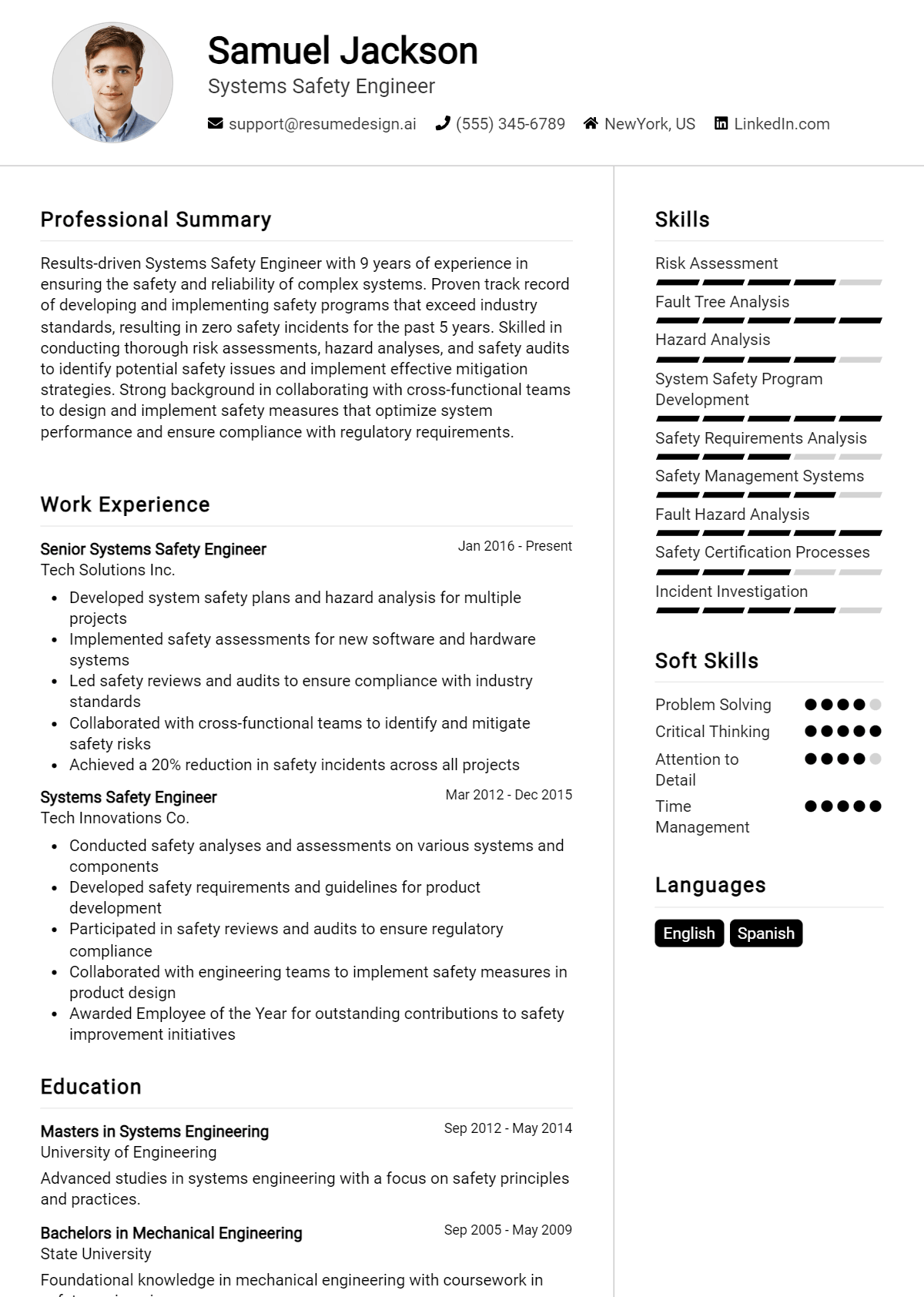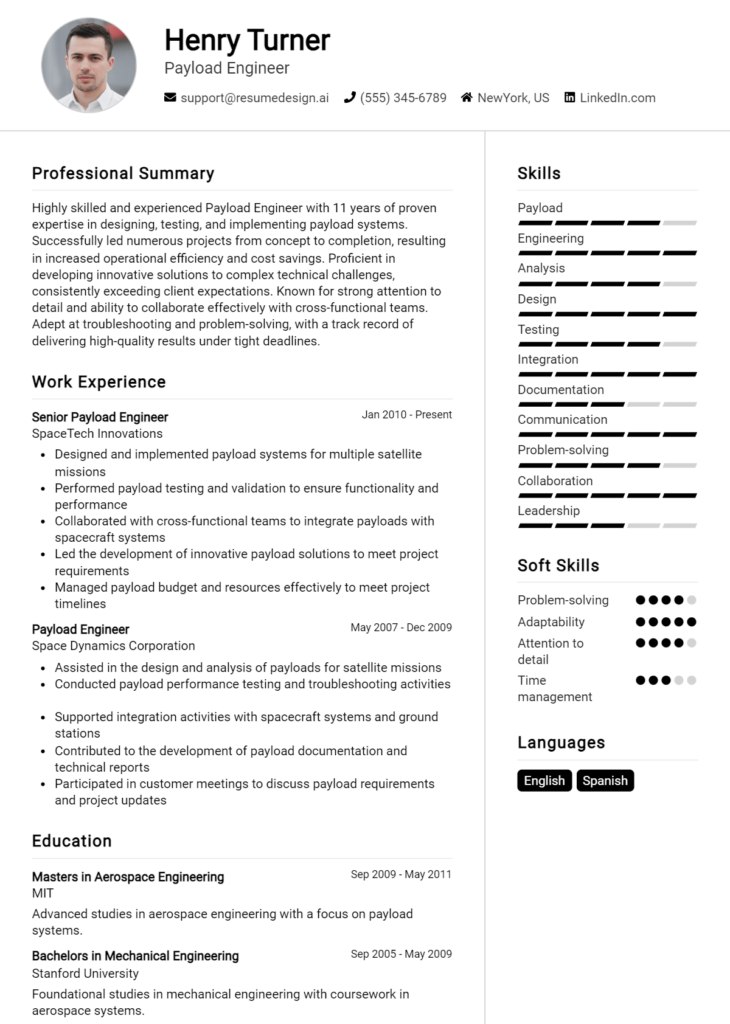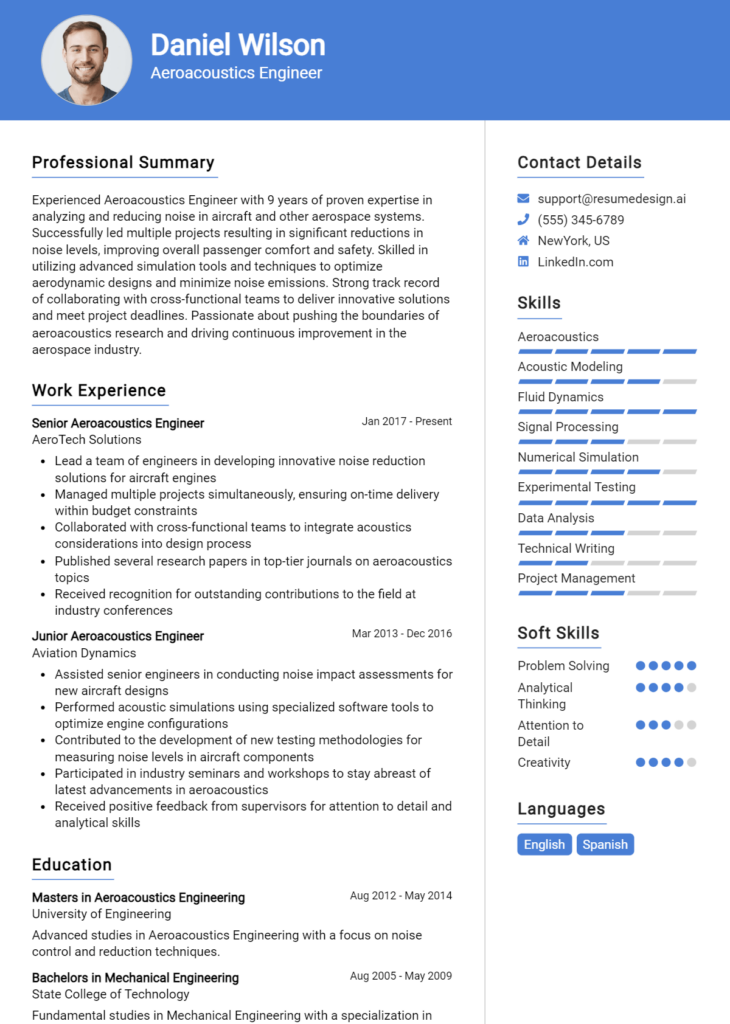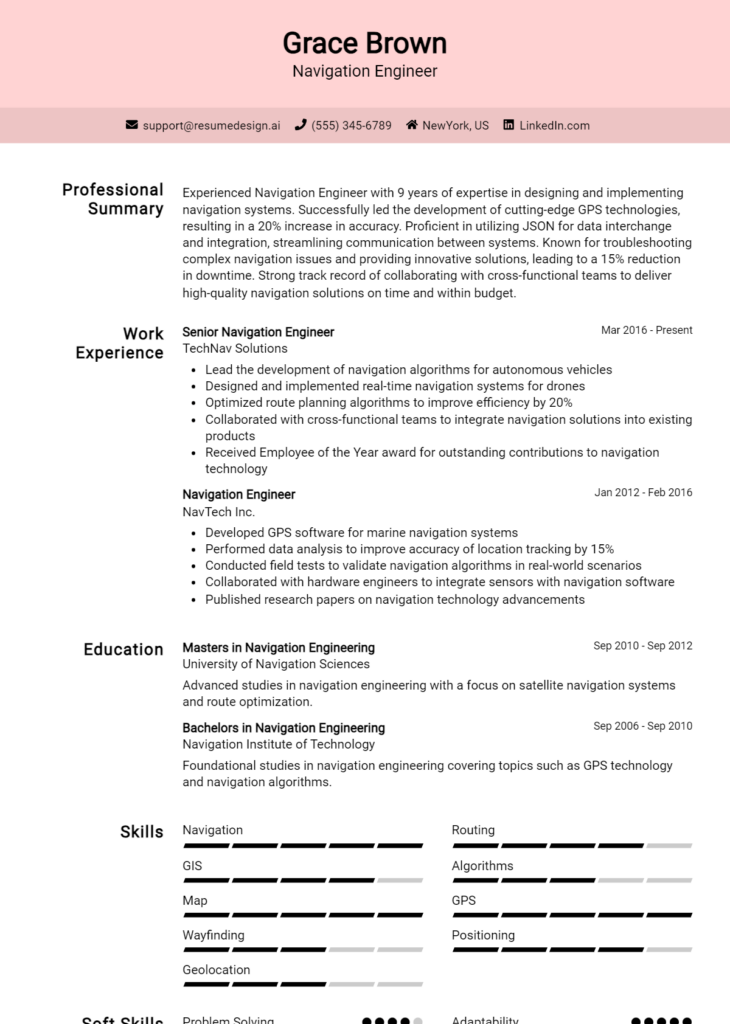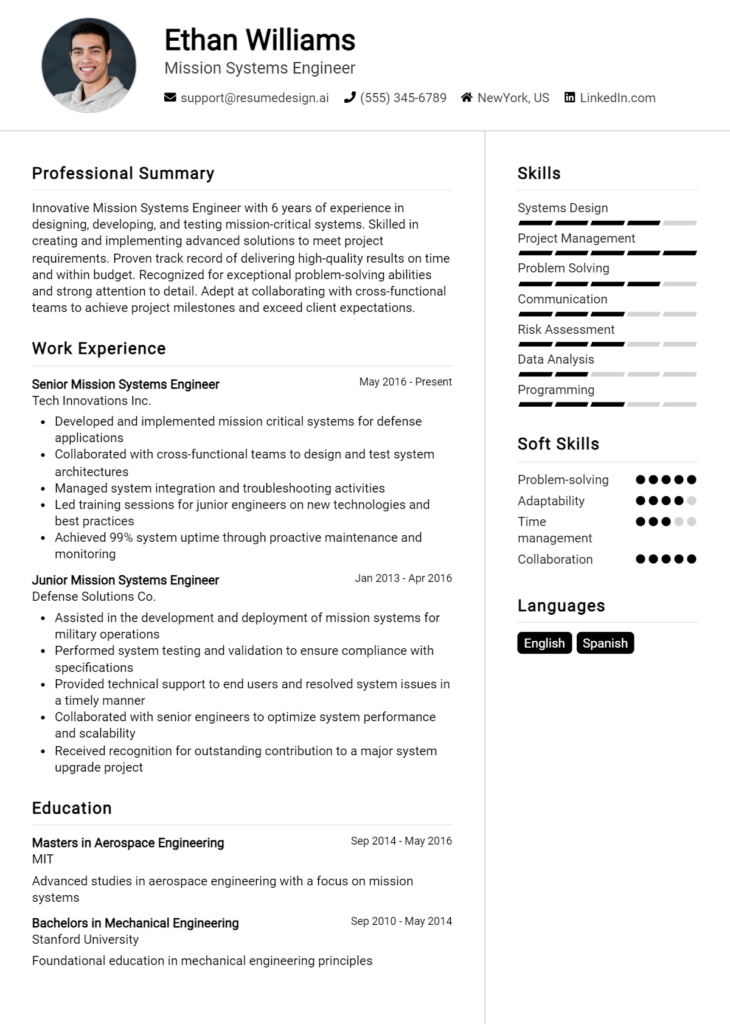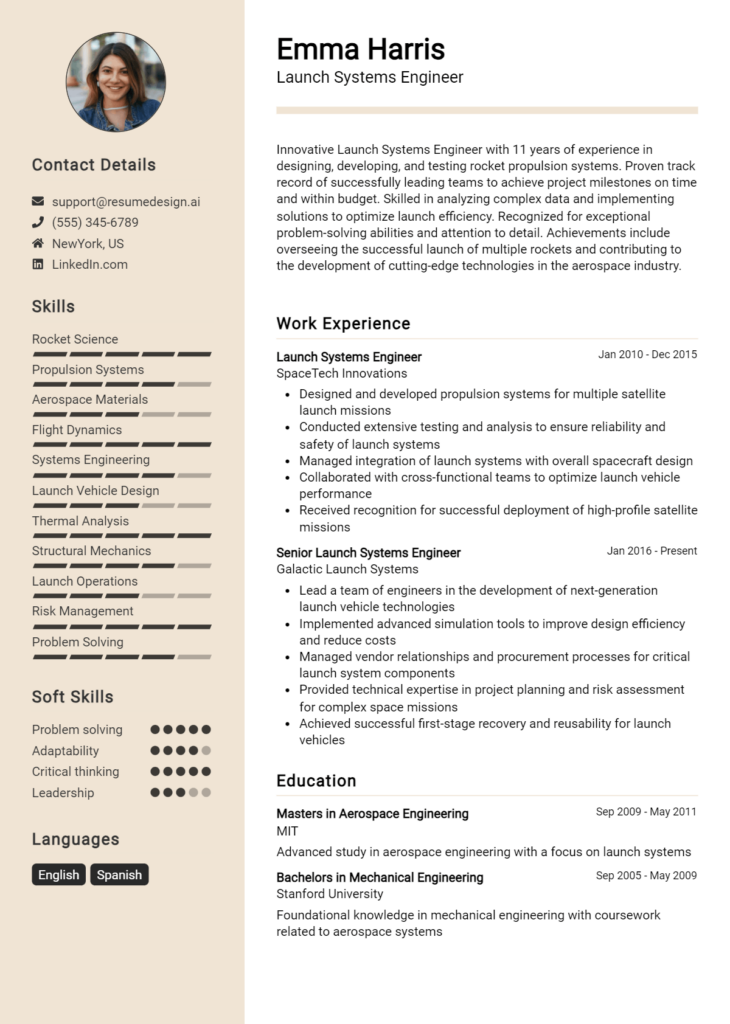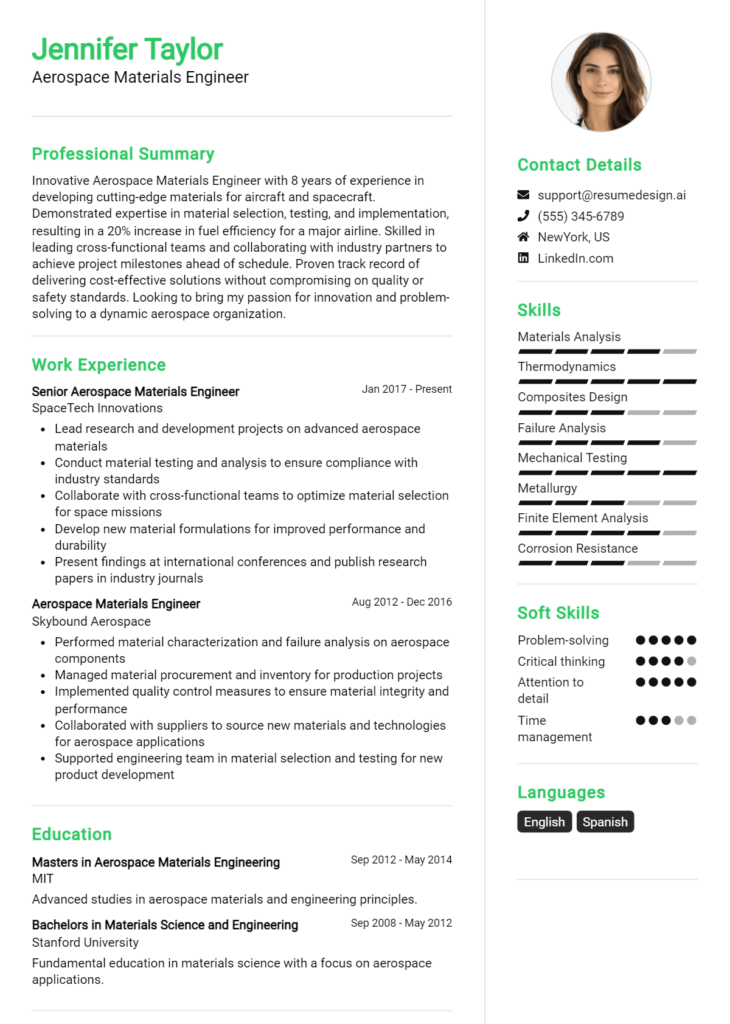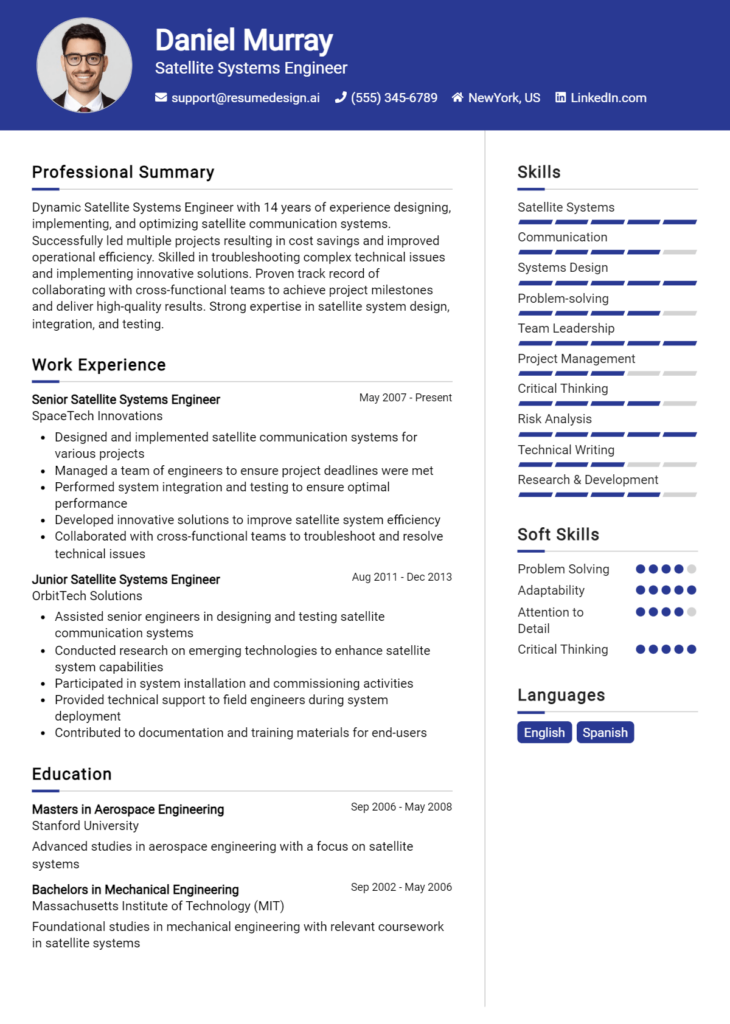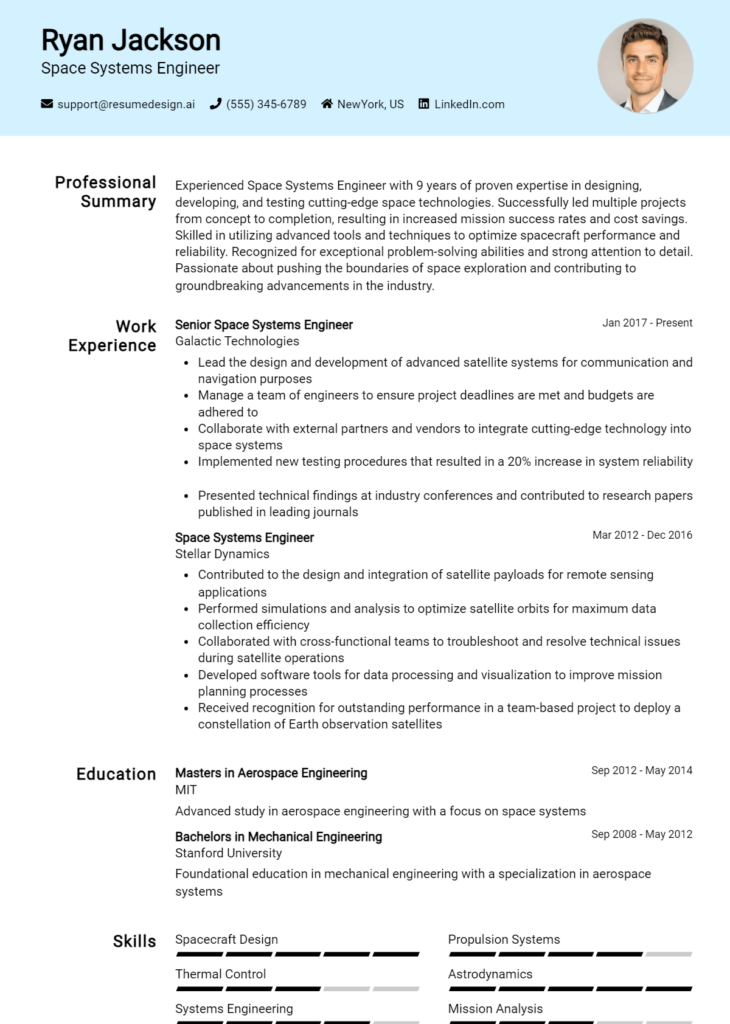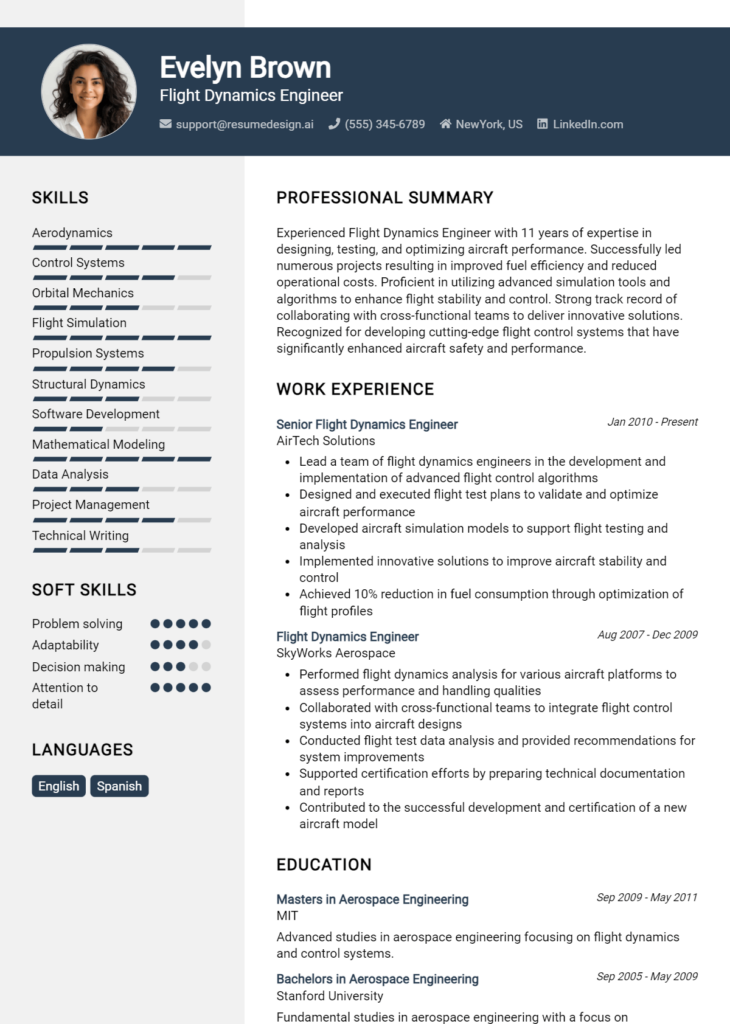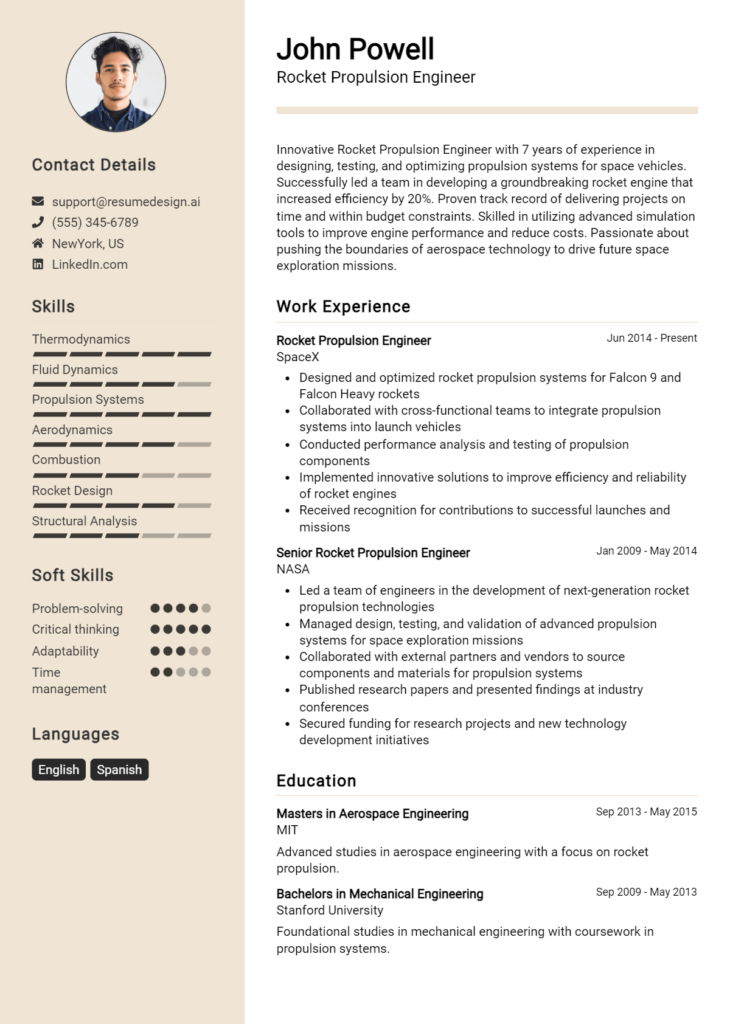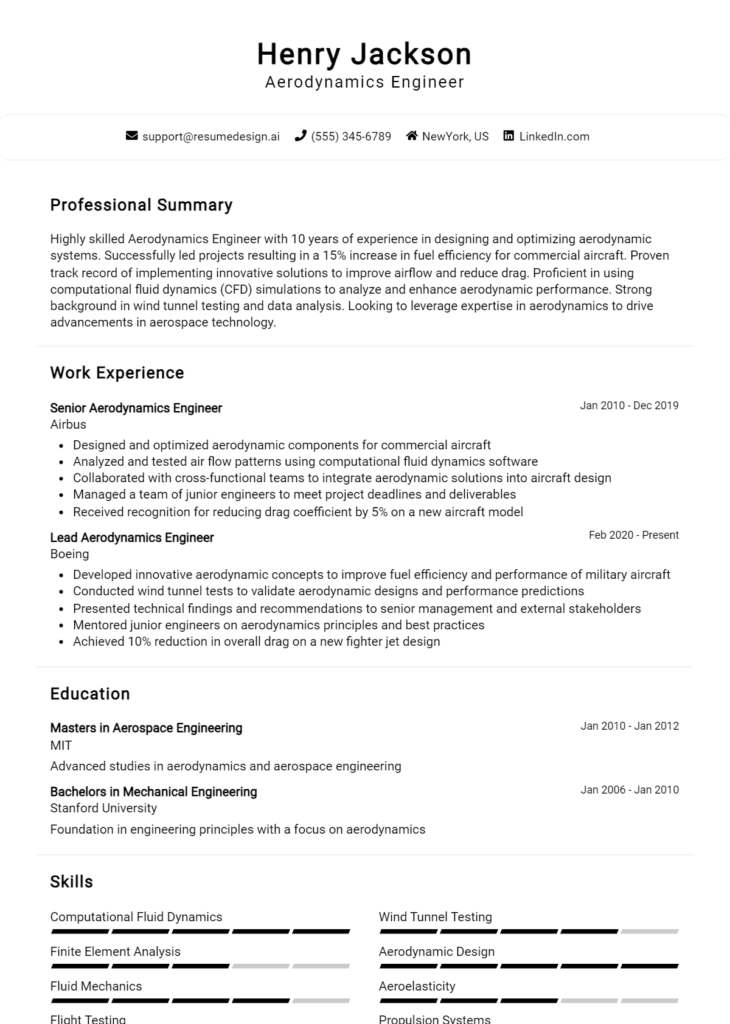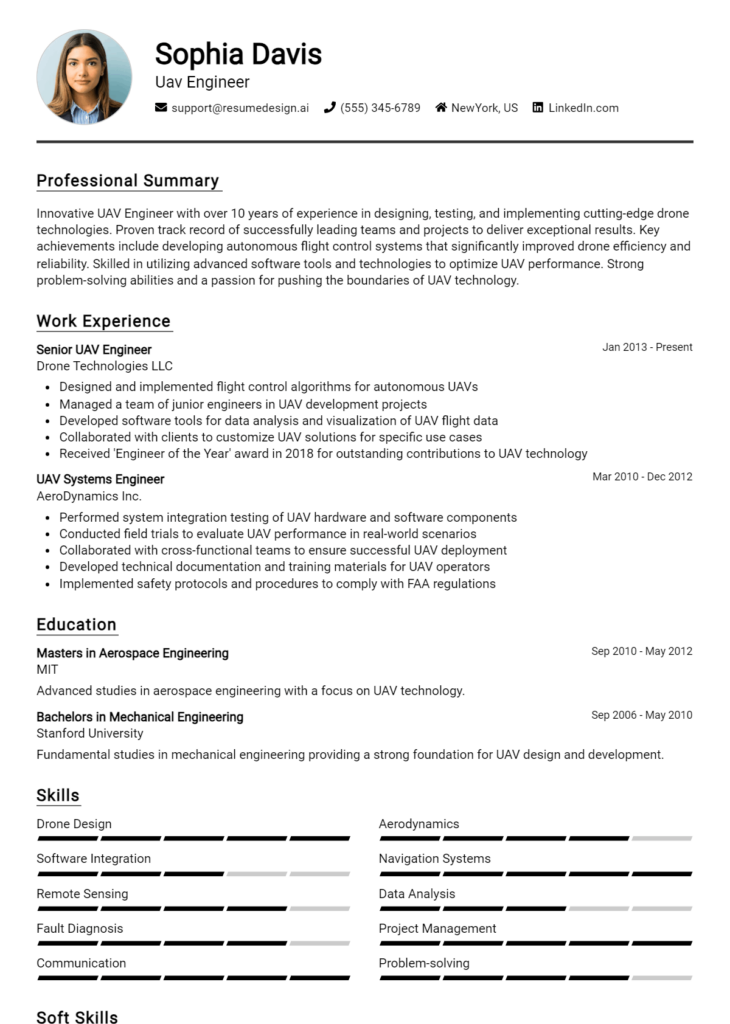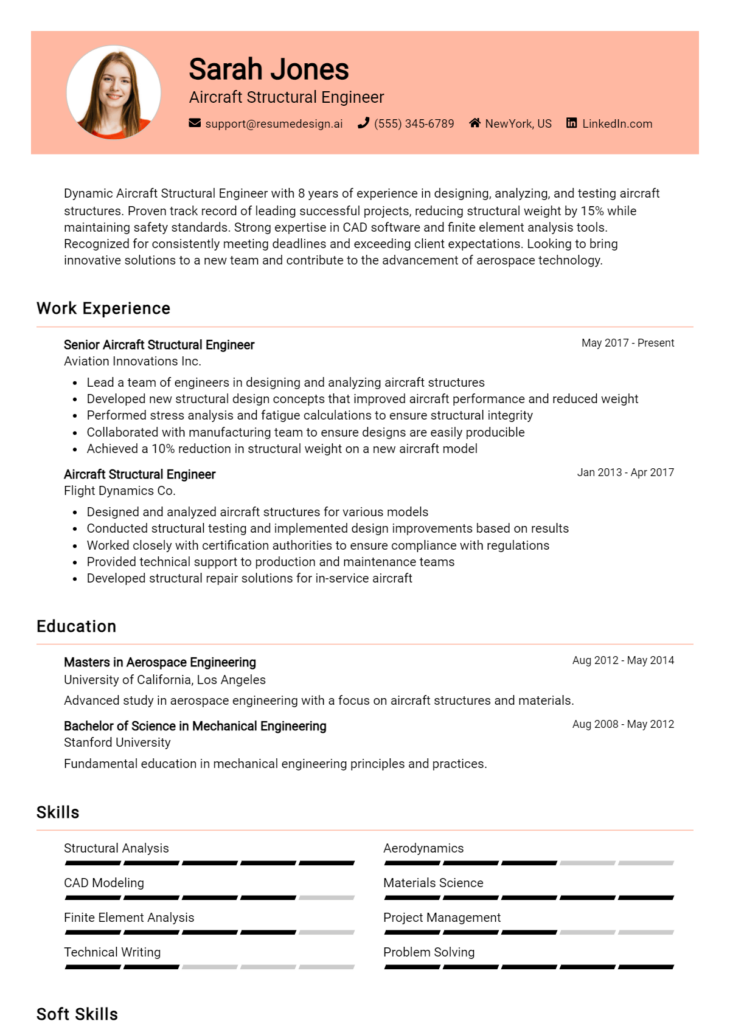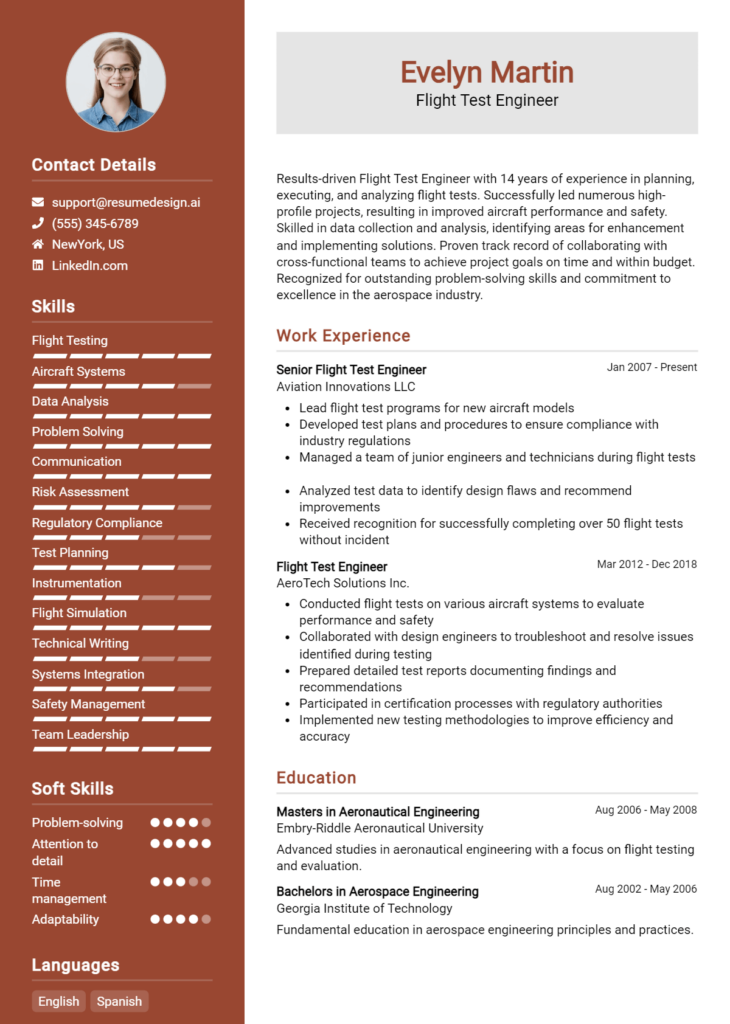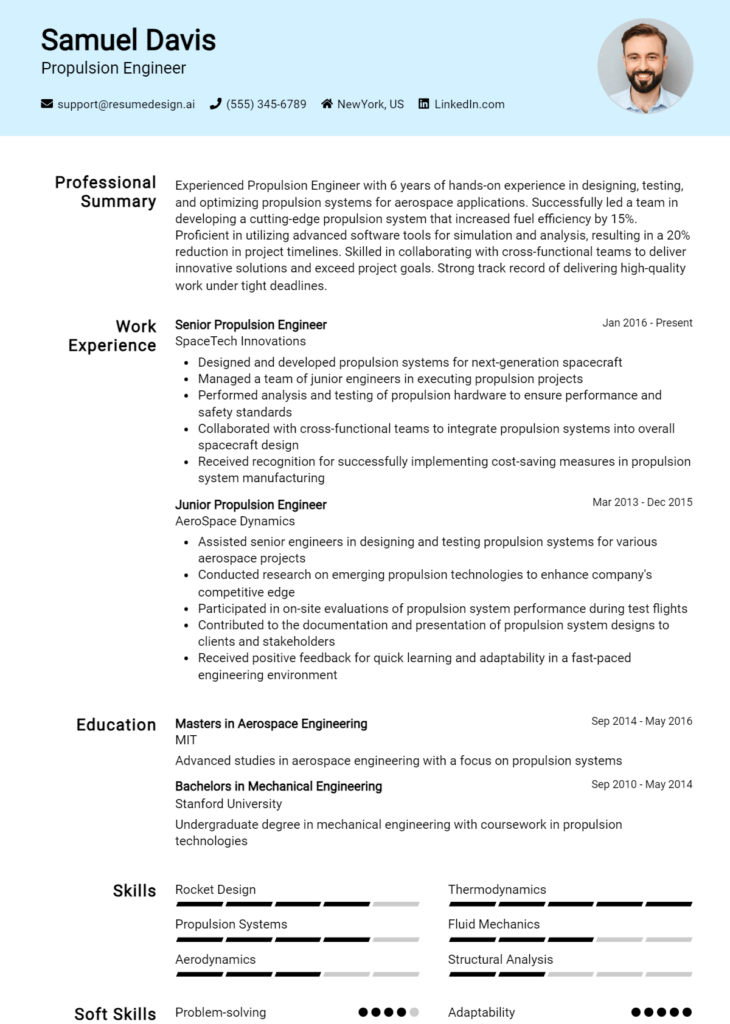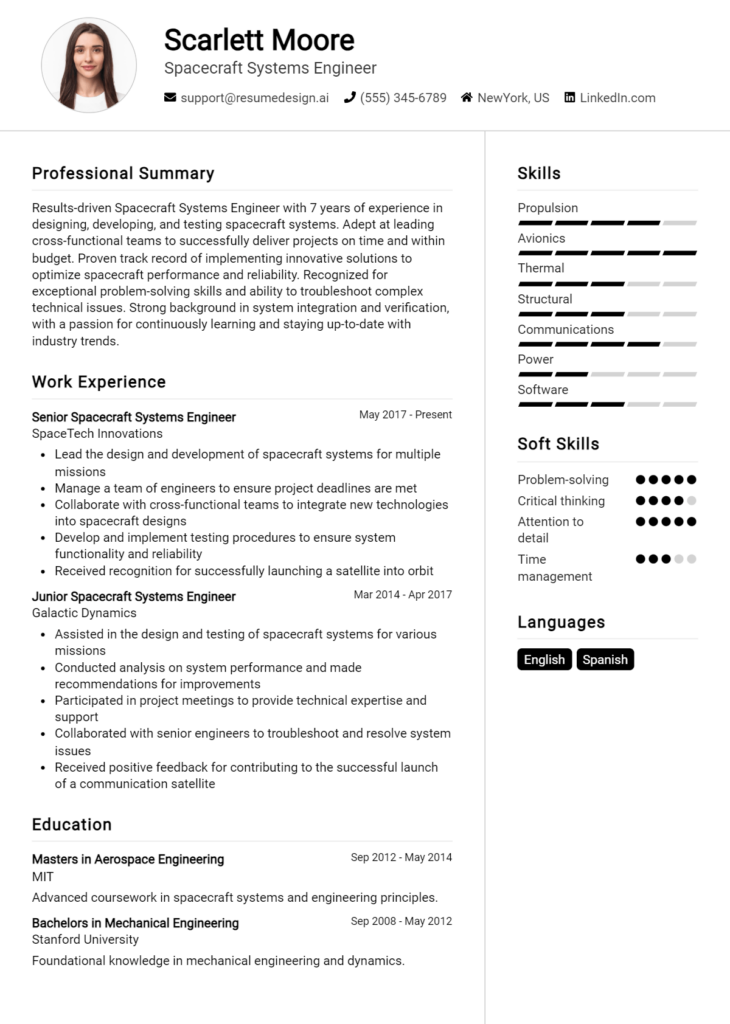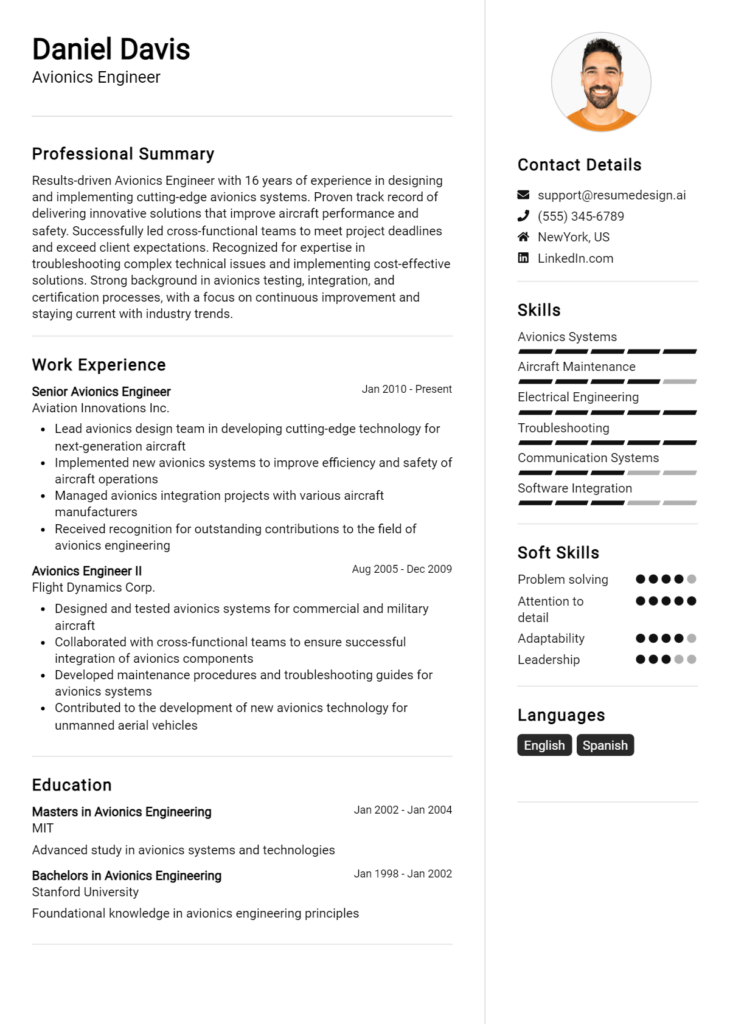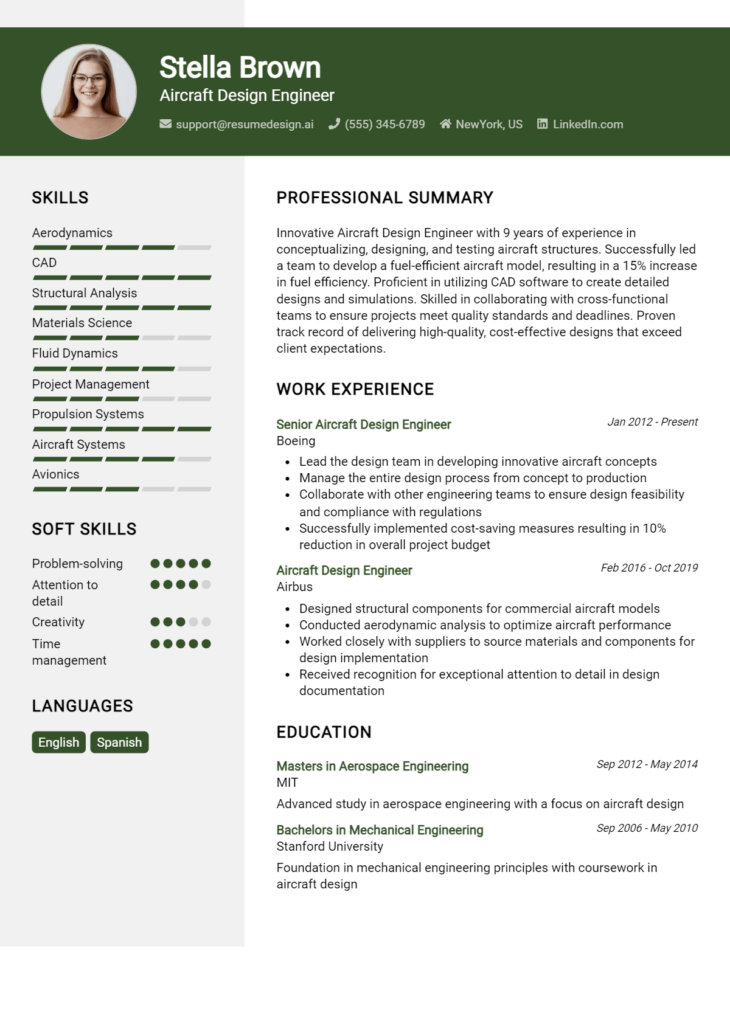Systems Safety Engineer Core Responsibilities
A Systems Safety Engineer plays a crucial role in ensuring the safety and reliability of complex systems by analyzing potential hazards and implementing effective risk management strategies. This position requires strong technical knowledge, operational awareness, and exceptional problem-solving skills to bridge various departments, including design, manufacturing, and quality assurance. These professionals contribute significantly to organizational goals by fostering a safety culture and ensuring compliance with regulations. A well-structured resume highlighting these skills can effectively showcase their qualifications to potential employers.
Common Responsibilities Listed on Systems Safety Engineer Resume
- Conduct hazard analyses and risk assessments for complex systems.
- Develop safety requirements and ensure compliance with industry standards.
- Collaborate with cross-functional teams to integrate safety into system design.
- Implement and monitor safety management systems.
- Perform safety audits and inspections to identify potential risks.
- Provide technical guidance on safety-related issues.
- Prepare and present safety reports and documentation.
- Facilitate safety training sessions for staff and stakeholders.
- Investigate incidents and recommend corrective actions.
- Maintain up-to-date knowledge of safety regulations and best practices.
- Utilize simulation and modeling techniques to analyze safety performance.
High-Level Resume Tips for Systems Safety Engineer Professionals
In today's competitive job market, a well-crafted resume is essential for Systems Safety Engineer professionals looking to make a lasting impression on potential employers. Your resume often serves as the first point of contact, and it must effectively showcase your unique skills and achievements in the field of systems safety. A meticulously designed resume not only reflects your technical capabilities but also conveys your commitment to safety and risk management. This guide will provide practical and actionable resume tips specifically tailored for Systems Safety Engineer professionals, helping you stand out in a crowded applicant pool.
Top Resume Tips for Systems Safety Engineer Professionals
- Tailor your resume to the job description by using keywords from the posting to align your skills with the employer's needs.
- Highlight relevant experience in safety assessments, hazard analysis, and risk management, ensuring to include specific projects you've worked on.
- Quantify your achievements by including metrics, such as reduced incident rates or improved safety compliance percentages, to demonstrate your impact.
- Showcase industry-specific skills, such as familiarity with safety standards (e.g., ISO 26262, DO-178C) and tools (e.g., Fault Tree Analysis, FMEA).
- Include certifications and training relevant to systems safety, such as Certified Safety Professional (CSP) or System Safety Certification.
- Utilize a clean and professional format that is easy to read, making effective use of white space and bullet points for clarity.
- Incorporate a summary statement at the top of your resume that succinctly highlights your key qualifications and career goals.
- Maintain a focus on continuous learning by mentioning any ongoing education or professional development that keeps your skills sharp.
- Use action verbs to describe your experiences, such as "analyzed," "developed," "implemented," and "enhanced," to convey your proactive approach.
By implementing these tips, you can significantly enhance your resume, making it a powerful tool in your job search within the Systems Safety Engineer field. A polished and focused resume not only increases your chances of catching a hiring manager's attention but also sets the stage for meaningful conversations during interviews.
Why Resume Headlines & Titles are Important for Systems Safety Engineer
The role of a Systems Safety Engineer is critical in ensuring the safety and reliability of complex systems across various industries. When crafting a resume for this position, the importance of a compelling headline or title cannot be overstated. A strong headline immediately captures the attention of hiring managers, providing a succinct summary of the candidate's key qualifications in a single impactful phrase. It should be concise, relevant, and directly aligned with the job description, allowing the candidate to stand out in a competitive job market and make a memorable first impression.
Best Practices for Crafting Resume Headlines for Systems Safety Engineer
- Keep it concise: Aim for a headline that is no longer than one or two lines.
- Be specific: Tailor your headline to reflect the specific role of Systems Safety Engineer.
- Highlight key skills: Incorporate essential skills or certifications relevant to systems safety.
- Use impactful language: Choose strong verbs and adjectives that convey your expertise.
- Align with job description: Reference keywords and phrases from the job posting.
- Showcase achievements: Include quantifiable accomplishments if possible.
- Avoid jargon: Use clear, professional language that can be understood by all hiring managers.
- Make it relevant: Ensure that the headline directly relates to the position you are applying for.
Example Resume Headlines for Systems Safety Engineer
Strong Resume Headlines
Dedicated Systems Safety Engineer with 8+ Years of Experience in Risk Assessment and Mitigation
Certified Systems Safety Professional Committed to Enhancing Operational Safety in Aerospace Engineering
Results-Driven Safety Engineer Specializing in Safety Analysis and Compliance for Complex Systems
Innovative Systems Safety Engineer Focused on Integrating Safety Protocols into Engineering Design Processes
Weak Resume Headlines
Engineer Looking for Work
Experienced Professional in Safety
The strong headlines are effective because they clearly communicate specific qualifications, relevant experience, and the candidate's focus on safety engineering, making them stand out to hiring managers. In contrast, the weak headlines fail to impress due to their vagueness and lack of specificity, which do not convey the candidate's unique skills or suitability for the Systems Safety Engineer role. A compelling headline can make all the difference in capturing attention and securing an interview opportunity.
Writing an Exceptional Systems Safety Engineer Resume Summary
A resume summary is a critical component for a Systems Safety Engineer, as it serves as the first impression to hiring managers. This concise introduction provides a snapshot of your key skills, relevant experience, and notable accomplishments, all tailored to the specific job you are applying for. A strong summary captures attention quickly, demonstrating your qualifications and setting the tone for the rest of your resume. It should be impactful, highlighting not only your technical expertise in safety systems but also your ability to contribute to risk management and compliance, ensuring that you stand out in a competitive job market.
Best Practices for Writing a Systems Safety Engineer Resume Summary
- Quantify Achievements: Use numbers and metrics to demonstrate the impact of your work.
- Focus on Key Skills: Highlight technical competencies and soft skills that are relevant to the role.
- Tailor for the Job Description: Customize your summary based on the specific requirements and language of the job posting.
- Use Action-Oriented Language: Start with strong verbs to convey your accomplishments and contributions effectively.
- Keep It Concise: Aim for 3-5 sentences to maintain clarity and focus.
- Showcase Industry Knowledge: Mention relevant standards, regulations, or methodologies common in systems safety engineering.
- Highlight Certifications: If applicable, reference any relevant certifications that bolster your qualifications.
Example Systems Safety Engineer Resume Summaries
Strong Resume Summaries
Results-driven Systems Safety Engineer with over 8 years of experience in aerospace safety analysis, improving risk assessment processes by 30% and reducing incident rates through proactive safety measures. Proven expertise in hazard analysis, safety documentation, and compliance with industry regulations.
Dedicated Systems Safety Engineer with a track record of managing safety-critical projects, achieving a 95% compliance rate with safety regulations. Skilled in developing and implementing safety management systems that enhanced operational efficiency by 20% while maintaining high safety standards.
Accomplished Systems Safety Engineer with a robust background in railway systems, successfully leading safety audits that resulted in a 40% reduction in non-conformities. Expert in fault tree analysis and risk assessment, committed to ensuring the highest safety levels across all engineering processes.
Weak Resume Summaries
Experienced engineer looking for a position in safety engineering where I can use my skills.
Systems Safety Engineer with some experience. I am interested in contributing to safety projects and helping teams.
The examples of strong resume summaries are effective because they are specific, incorporate quantifiable results, and clearly outline relevant skills and experiences that align with the Systems Safety Engineer role. In contrast, the weak summaries lack detail and specificity, failing to convey the candidate's qualifications or achievements, making them less compelling to potential employers.
Work Experience Section for Systems Safety Engineer Resume
The work experience section is a critical component of a Systems Safety Engineer's resume, as it provides a platform for candidates to illustrate their technical skills and expertise in a highly specialized field. This section not only highlights the candidate's ability to manage teams effectively but also demonstrates their commitment to delivering high-quality safety products and solutions. By quantifying achievements and aligning experience with industry standards, candidates can create a compelling narrative that showcases their value to potential employers.
Best Practices for Systems Safety Engineer Work Experience
- Use specific metrics to quantify achievements, such as reduced incident rates or improved safety compliance percentages.
- Highlight technical skills relevant to safety engineering, including hazard analysis, risk assessment, and safety management systems.
- Emphasize leadership roles in project teams, showcasing your ability to guide and mentor colleagues.
- Include certifications and training that reinforce your expertise in safety engineering methodologies and regulations.
- Demonstrate collaborative efforts with cross-functional teams to enhance safety protocols and procedures.
- Tailor your experiences to align with industry standards and best practices in safety engineering.
- Utilize action verbs to create impactful statements that convey your contributions effectively.
- Keep descriptions concise yet informative, focusing on achievements rather than job duties.
Example Work Experiences for Systems Safety Engineer
Strong Experiences
- Led a cross-functional team to implement a new safety management system that resulted in a 30% decrease in workplace accidents over two years.
- Conducted comprehensive risk assessments for a major infrastructure project, identifying critical hazards and implementing corrective actions that improved compliance rates by 40%.
- Managed a team of five engineers in the development of safety protocols for a new product line, successfully reducing time-to-market by 15% while adhering to regulatory standards.
- Facilitated training sessions for over 100 employees on safety best practices, leading to a 50% increase in safety reporting and awareness across the organization.
Weak Experiences
- Involved in safety projects as part of a team.
- Helped with safety assessments occasionally.
- Participated in meetings about safety protocols.
- Worked on developing safety documents.
The examples of strong experiences are considered effective because they provide specific, quantifiable outcomes that demonstrate the candidate's impact on safety performance and their leadership capabilities. In contrast, the weak experiences are vague and lack detail, failing to convey any significant accomplishments or contributions to safety engineering, making them less persuasive to potential employers.
Education and Certifications Section for Systems Safety Engineer Resume
The education and certifications section of a Systems Safety Engineer resume is crucial as it serves to validate the candidate's academic background and professional qualifications. This section highlights not only formal education but also industry-relevant certifications and continuous learning efforts that are essential in a field where safety standards and technologies are constantly evolving. By providing details on relevant coursework, certifications, and any specialized training, candidates can significantly enhance their credibility and demonstrate their alignment with the job role, showcasing their preparedness to tackle the unique challenges of systems safety engineering.
Best Practices for Systems Safety Engineer Education and Certifications
- Prioritize relevant degrees such as a Bachelor’s or Master’s in Systems Engineering, Safety Engineering, or a related field.
- Include industry-recognized certifications like Certified Safety Professional (CSP) or System Safety Certified Professional (SSCP).
- Detail specific coursework that relates directly to systems safety, risk management, or safety analysis.
- Highlight any additional training in safety regulations, standards, or software tools used in safety engineering.
- Focus on the most recent and relevant qualifications to keep the resume up-to-date.
- Use clear and concise language to describe educational achievements and certifications.
- Consider including ongoing education efforts, such as workshops or seminars, to show commitment to professional development.
- Organize the section in reverse chronological order, starting with the most recent qualifications.
Example Education and Certifications for Systems Safety Engineer
Strong Examples
- B.S. in Systems Engineering, University of California, 2020
- Certified Safety Professional (CSP), Board of Certified Safety Professionals, 2022
- Advanced Risk Management Course, Institute of Safety Professionals, 2021
- M.S. in Safety Engineering, Texas A&M University, 2023
Weak Examples
- B.A. in Philosophy, University of Somewhere, 2015
- Certification in Basic First Aid, 2018
- Diploma in Computer Programming, Technical School, 2010
- Outdated OSHA 10-Hour Training, 2014
The strong examples are considered effective because they directly relate to the field of systems safety engineering, showcasing relevant degrees and recognized certifications that affirm the candidate's expertise. In contrast, the weak examples highlight educational qualifications and certifications that lack relevance to the role, indicating outdated or unrelated training that does not contribute to the candidate's qualifications as a Systems Safety Engineer.
Top Skills & Keywords for Systems Safety Engineer Resume
As a Systems Safety Engineer, showcasing the right skills on your resume is crucial for demonstrating your ability to identify, analyze, and mitigate risks in complex systems. Employers look for candidates who possess a blend of technical expertise and interpersonal abilities to navigate safety challenges effectively. A well-crafted resume that highlights both hard and soft skills can set you apart in a competitive job market. In this role, your skills not only contribute to the safety and reliability of systems but also foster collaboration and communication across multidisciplinary teams.
Top Hard & Soft Skills for Systems Safety Engineer
Soft Skills
- Analytical Thinking
- Problem Solving
- Attention to Detail
- Effective Communication
- Team Collaboration
- Time Management
- Adaptability
- Leadership
- Critical Thinking
- Conflict Resolution
- Decision-Making
- Creativity
- Interpersonal Skills
- Organizational Skills
- Empathy
Hard Skills
- Risk Assessment and Management
- Safety Analysis Techniques (e.g., FMEA, fault tree analysis)
- Knowledge of Safety Standards (e.g., ISO 26262, IEC 61508)
- System Safety Engineering Principles
- Familiarity with Safety Case Development
- Hazard Identification Techniques
- Reliability Engineering
- Software Safety Analysis
- Regulatory Compliance
- Proficiency in Safety Modeling Tools
- Data Analysis and Interpretation
- Systems Engineering Methodologies
- Technical Report Writing
- Project Management
- Simulation and Testing
- Familiarity with Safety Management Systems
- Statistical Analysis Techniques
- Programming Skills (e.g., MATLAB, Python)
For more insights on emphasizing your skills and highlighting relevant work experience, consider tailoring your resume to reflect the competencies that align with the Systems Safety Engineer role.
Stand Out with a Winning Systems Safety Engineer Cover Letter
Dear Hiring Manager,
I am writing to express my interest in the Systems Safety Engineer position at [Company Name], as advertised on [Job Board/Company Website]. With a robust background in systems engineering and a specialized focus on safety protocols, I am excited about the opportunity to contribute my expertise to your team. My experience in conducting hazard analyses, developing safety requirements, and implementing risk management strategies aligns perfectly with [Company Name]'s commitment to innovation and safety in engineering solutions.
In my previous role at [Previous Company Name], I successfully led a cross-functional team in the development of a safety management system for a complex aerospace project. By implementing rigorous safety assessments and fostering a culture of safety awareness, we were able to reduce potential hazards by 30% and enhance overall project efficiency. My skills in utilizing tools such as Fault Tree Analysis (FTA) and Failure Mode and Effects Analysis (FMEA) have equipped me with the ability to identify and mitigate risks effectively, ensuring compliance with industry standards and best practices.
Moreover, I am adept at collaborating with multiple stakeholders, including project managers, design engineers, and regulatory bodies, to ensure that safety is integrated into every phase of the project lifecycle. My strong analytical skills, coupled with my attention to detail, allow me to navigate complex systems and propose practical solutions that enhance safety without compromising performance. I am particularly drawn to [Company Name] because of its reputation for pushing the boundaries of technology while maintaining stringent safety protocols, and I am eager to contribute to such impactful work.
Thank you for considering my application. I look forward to the opportunity to discuss how my background and skills can contribute to the ongoing success of [Company Name] as a Systems Safety Engineer. I am excited about the prospect of joining your team and helping to advance the safety initiatives that are vital to your projects.
Sincerely,
[Your Name]
[Your Contact Information]
[LinkedIn Profile or Other Relevant Links]
Common Mistakes to Avoid in a Systems Safety Engineer Resume
A well-crafted resume is essential for a Systems Safety Engineer seeking to stand out in a competitive job market. However, many candidates make common mistakes that can undermine their qualifications and reduce their chances of landing an interview. Avoiding these pitfalls can significantly enhance the effectiveness of your resume, ensuring it accurately reflects your skills, experiences, and dedication to safety engineering.
Vague Objective Statements: Using a generic objective statement instead of a specific one tailored to the Systems Safety Engineer role can make your resume appear unfocused. Tailor your objective to highlight your interest and qualifications for the specific position.
Neglecting Relevant Certifications: Failing to include important certifications relevant to systems safety, such as Certified Safety Professional (CSP) or System Safety Certified Professional (SSCP), can lead hiring managers to overlook your expertise.
Overloading with Technical Jargon: While technical knowledge is crucial, overloading your resume with jargon can confuse recruiters who may not have a technical background. Strike a balance by explaining complex terms clearly.
Ignoring Soft Skills: Systems Safety Engineers need strong communication and teamwork skills. Omitting these soft skills can give the impression that you lack the interpersonal abilities required for the role.
Lack of Quantifiable Achievements: Simply listing job responsibilities without quantifying your achievements can make your resume less impactful. Use metrics and specific examples to demonstrate how you contributed to past projects.
Inconsistent Formatting: A cluttered or inconsistent format can detract from the professionalism of your resume. Ensure uniformity in font, size, and layout to enhance readability and make a strong impression.
Failing to Tailor Content for Each Application: Sending out a one-size-fits-all resume can be detrimental. Tailor your resume for each application to reflect the skills and experiences that align with the specific job description.
Inadequate Attention to Detail: Spelling and grammatical errors can undermine your credibility. Thoroughly proofread your resume to avoid mistakes that could suggest a lack of attention to detail, especially in a field where precision is critical.
Conclusion
As a Systems Safety Engineer, your role is crucial in ensuring that systems operate safely and efficiently, minimizing risks associated with complex engineering projects. In this article, we explored the essential skills and qualifications required for this position, including expertise in hazard analysis, risk management, and compliance with safety regulations. We also highlighted the importance of effective communication and collaboration with multidisciplinary teams to address safety concerns proactively.
In conclusion, it is vital to ensure that your resume effectively showcases your qualifications and experiences as a Systems Safety Engineer. Take the time to review your resume and make necessary adjustments to align with industry standards and expectations.
To assist you in this process, consider utilizing the following resources:
- Explore resume templates to create a polished and professional layout.
- Use our resume builder for an easy and guided approach to crafting your resume.
- Review resume examples for inspiration on how to highlight your skills and experiences.
- Don’t forget to check out our cover letter templates to complement your application.
Now is the time to take action and ensure your resume stands out in the competitive job market. Start refining your materials today!

